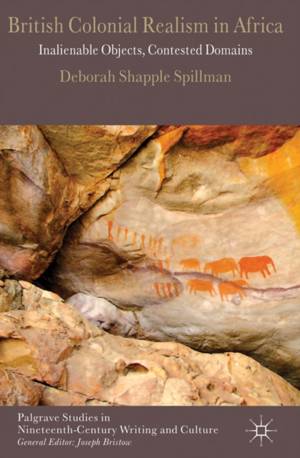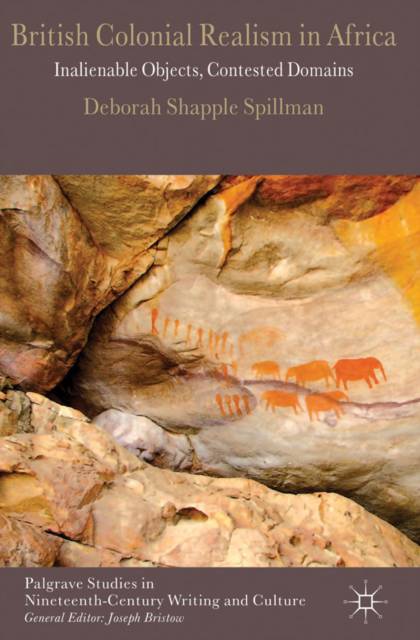
- Afhalen na 1 uur in een winkel met voorraad
- Gratis thuislevering in België vanaf € 30
- Ruim aanbod met 7 miljoen producten
- Afhalen na 1 uur in een winkel met voorraad
- Gratis thuislevering in België vanaf € 30
- Ruim aanbod met 7 miljoen producten
Zoeken
€ 83,95
+ 167 punten
Uitvoering
Omschrijving
How are objects central to the formation of individuals, their communities, and their liberties? What role do objects play as they move between societies and their different systems of value as commodities, as charms, as gifts, as trophies, or as curses? Nineteenth-century British authors attempting to transport narrative realism to the colonies confronted such questions directly and indirectly as they struggled to represent competing forms of material investment that characterized colonial and postcolonial life in Africa. Reading works by authors from Joseph Conrad and Mary Kingsley to Anna Howarth and Olive Schreiner against nineteenth-century African essays, folklore, visual arts, and recorded testimonies, this new study considers how conflicts over the material world impacted literary realism in colonial Africa. These conflicts highlight tensions between Victorian and African perceptions of objects and practices of exchange, while directing our attention toward alternate histories and stories yet to be told.
Specificaties
Betrokkenen
- Auteur(s):
- Uitgeverij:
Inhoud
- Aantal bladzijden:
- 245
- Taal:
- Engels
- Reeks:
Eigenschappen
- Productcode (EAN):
- 9780230378001
- Verschijningsdatum:
- 4/05/2012
- Uitvoering:
- Hardcover
- Formaat:
- Genaaid
- Afmetingen:
- 145 mm x 216 mm
- Gewicht:
- 476 g

Alleen bij Standaard Boekhandel
+ 167 punten op je klantenkaart van Standaard Boekhandel
Beoordelingen
We publiceren alleen reviews die voldoen aan de voorwaarden voor reviews. Bekijk onze voorwaarden voor reviews.







